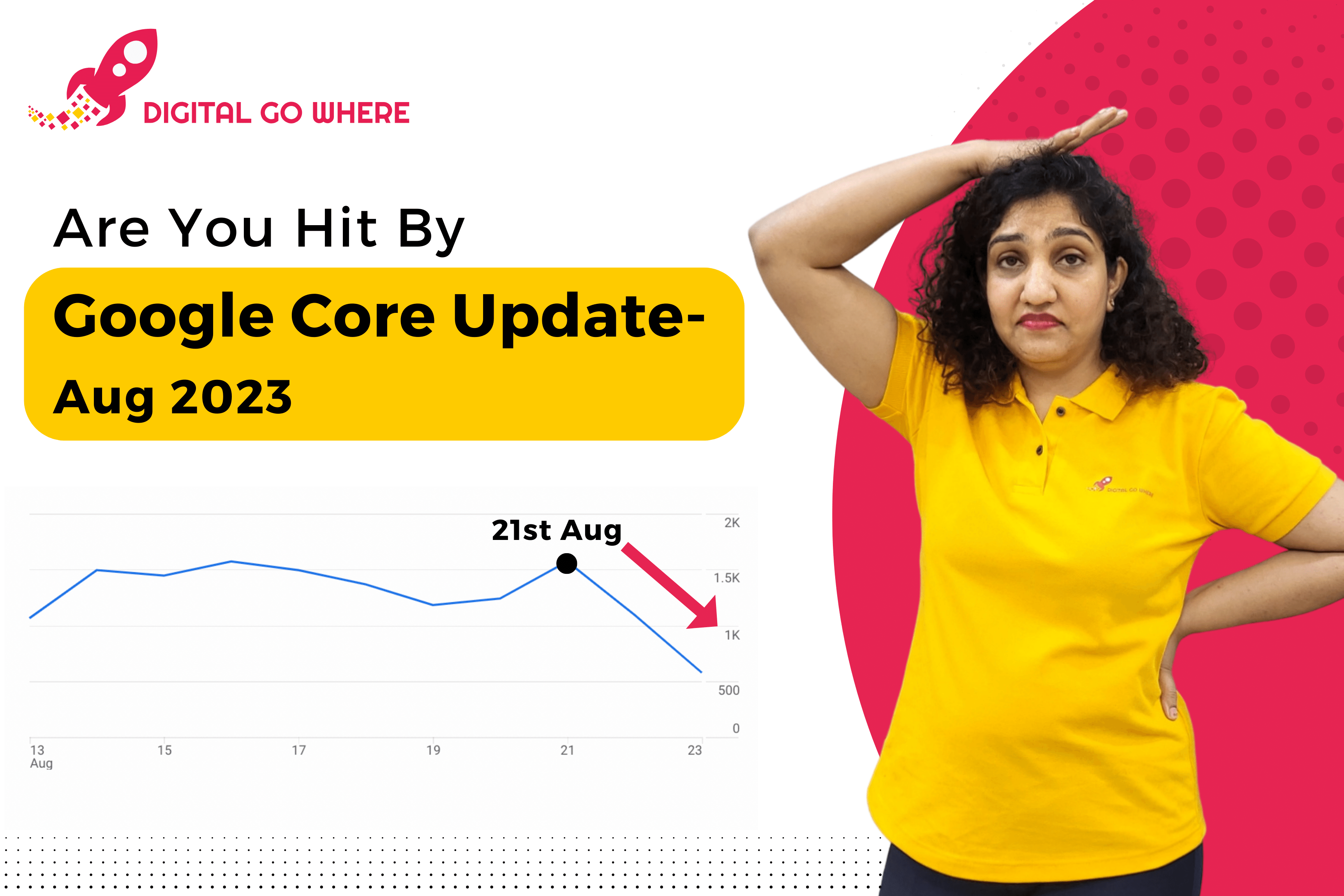Have you ever encountered a situation where your SEO rankings experienced a sudden drop following the launch of a Google Core Update?
Google recently introduced its second broad core update for 2023. This update started its deployment on August 22, 2023, and is anticipated to unfold gradually over the upcoming weeks.
After the last roll out in March 2023, which concluded in 13 days 7 hours, the tech giant has been relatively quiet on the update front. But now it is back with the second major update of the year. In this blog, we’ll dive into details that you all need to know about the update:
Table Of Contents
- What is a Google Core update?
- Why does Google release core updates?
- How does Core Updates impact websites?
- How to Regain Lost Rankings after a Google Core Update?
- conclusion
What Is A Google Core Update?
Google implements substantial and extensive modifications to its search algorithms and frameworks multiple times annually, which are known as Google Core Updates.They let people know about these changes by putting them on a list of updates for how Google ranks search results.
Why Does Google Release Core Updates?
- Address User Intent: Core updates from Google serve the purpose of aligning search results with changing user search behavior and intent. In addition to this, they also help identify and rectify instances where low-quality or irrelevant content ranks prominently in search results.
- Combat Manipulative Practices: Some websites might employ manipulative tactics to artificially boost their search rankings. Core updates aim to identify and penalize such tactics, promoting websites that offer genuine value to users.
- Algorithm Enhancements:: Google continually refines its search algorithm with advancements like machine learning and natural language processing. Core updates apply these improvements to enhance how the algorithm understands and ranks content.
How Does Core Updates Impact Websites?
After a core update, websites can have significant effects on their search rankings and visibility while some may not see any effect.
The impact of core updates on websites can vary depending on a variety of factors, including the quality of the website’s content, its relevance to user intent, the presence of manipulative practices, and how well it aligns with Google’s evolving algorithm.
Related Read : Google’s September 2023 Helpful Content Update
How To Regain Lost Rankings After A Google Core Update?
1- Building quality content – Google’s algorithm emphasizes prioritizing high-quality content, aiming to reward websites that provide valuable information, and offers a list of questions to assess content quality. Make sure you answer these questions below for drafting your content:
- Does the content offer original information, research, reporting, or analysis?
- Does the content present a substantial, thorough, or comprehensive overview of the topic?
- Does the content provide insightful analysis or engaging information beyond the obvious?
- If the content references other sources, does it go beyond mere copying or rephrasing and add significant original value?
- Does the main heading or title provide a helpful, accurate summary of the content?
- Does the main heading or title avoid sensationalism or exaggeration?
- Is this a page you would want to bookmark, share with others, or recommend?
- Would you anticipate finding this content in a printed magazine, book, or encyclopedia, or being referred to by such sources?
- Does the content deliver considerable value compared to other results in search?
- Are there any spelling or stylistic concerns within the content? Is the content well-crafted, or does it appear rushed or unpolished?
- Is the content generated on a large scale by multiple creators or outsourced across a network of sites, potentially impacting its quality and care?
2- Optimize Internal Links: Internal linking has gained importance post-update. Strengthen your website’s structure with strategic interlinking using relevant keywords to enhance user experience and search engine visibility.
3- Evaluate Backlinks Quality: Revisit your acquired backlinks and ensure they’re of high quality. Avoid purchasing cheap backlinks, as they may negatively impact your website’s credibility and ranking.
4- Examine potential issues -Thoroughly check all the possible concerns by closely analyzing underperforming pages. Start by utilizing GA4 to identify recent dips in page metrics, then cross-reference this with Google Search Console data to uncover keywords that have experienced declines. Focusing your attention to pages displaying poor performance in order to pinpoint and address potential issues effectively.
Conclusion:
n the coming weeks, Google’s recent core update will gradually be implemented. Begin by giving priority to on-page SEO. Revise and rejuvenate your content, ensuring its alignment with the latest data points of 2023. Also, stay updated with all the changes. Stay connected with platforms like Google Search Central, Search Engine Land and Search Engine Journal for real-time analysis of SEO core updates.










